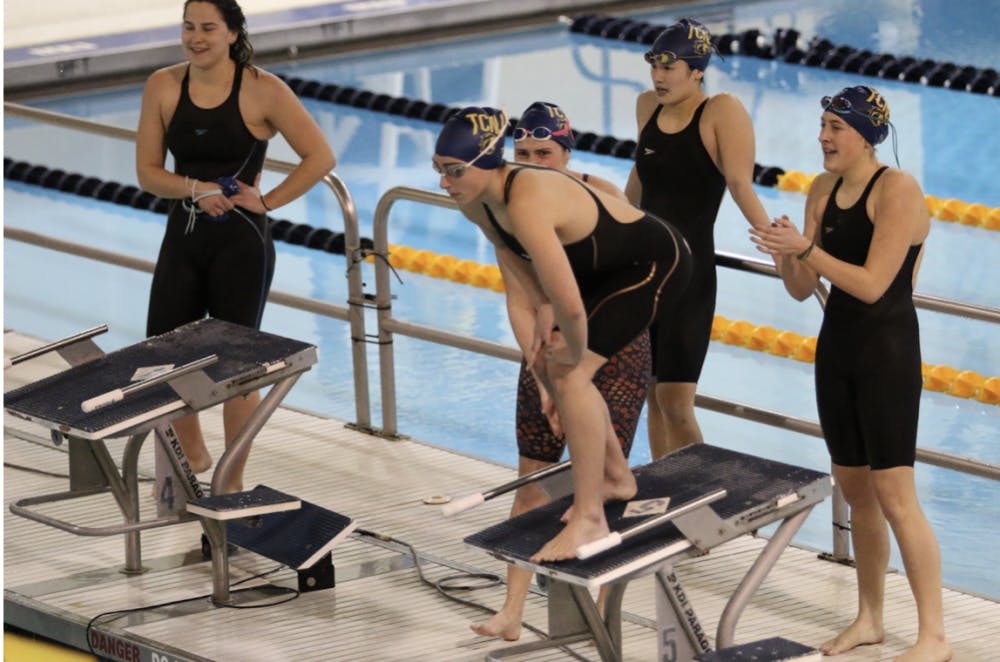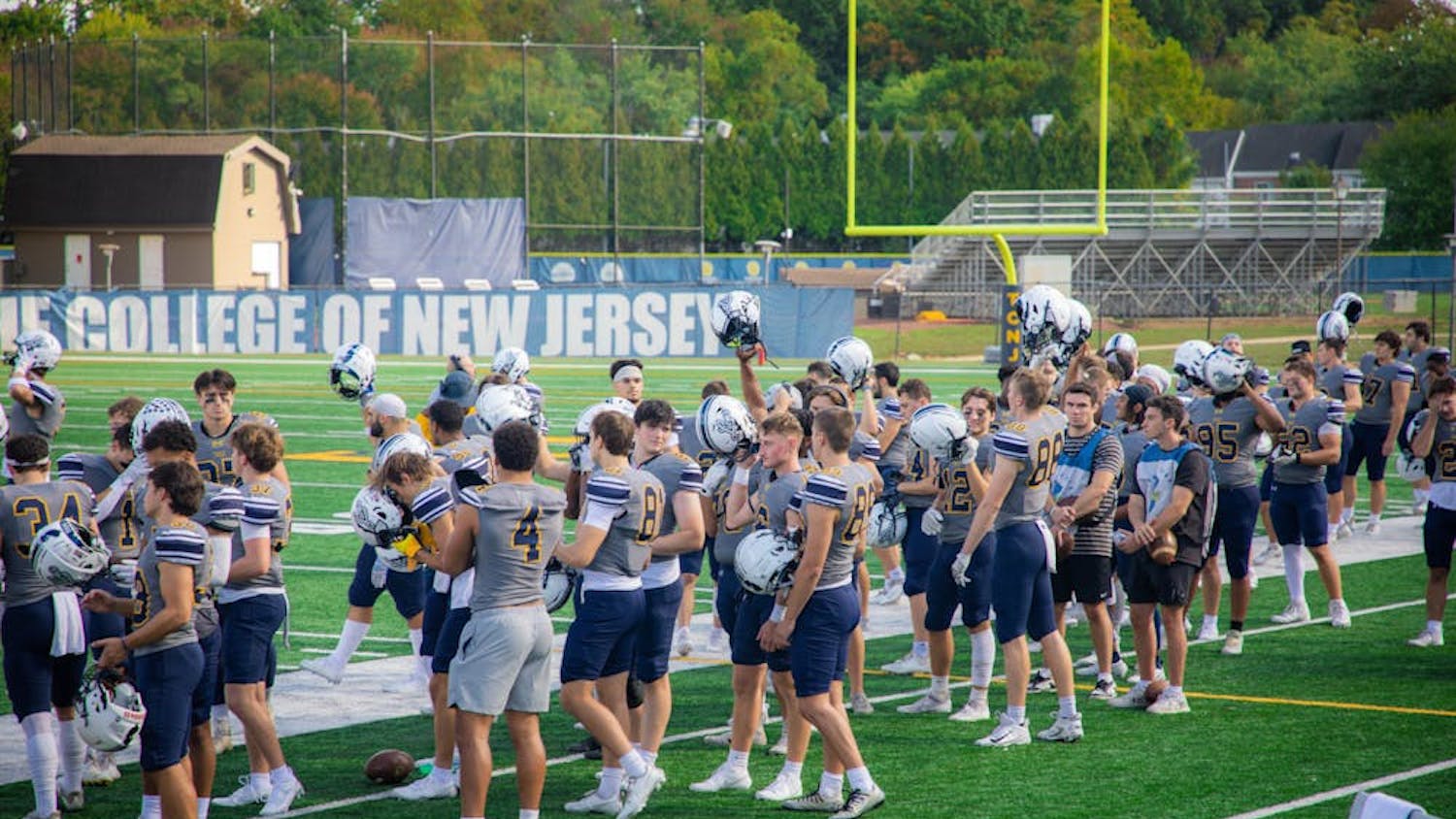By Jordyn Sava
Staff Writer
The women’s swim team has seen their season change in a plethora of ways due to Covid-19. Nevertheless, they dove into the uncharted waters brought on by the pandemic.
For senior physics and secondary education dual major Nicki Meskin, knowing any practice could be her last ever kept her grateful, yet worried.
“I think the thing that has made it so different has actually been the unpredictability,” Meskin said. “For example, there could be a call one hour before canceling practice for the day or moving it for Covid-related reasons.”
From waiting for everyone’s test results to come in before they could swim to learning if they had to drop everything and quarantine, everything became a game-day decision.
The season was not only shortened, leaving them without the usual six practices a week, but all meets were held virtually.
All of the athletes had to adapt to racing against imaginary opponents in the lanes next to them, as they could not physically be near other swimmers during races. They could not even see the other teams.
“Since we were not next to a physical team, we had to bring the energy ourselves,” Meskin said. “Our coach would always say, ‘Push the last five yards even more because you have no idea if you’re neck and neck with the person next to you.’”

As different as having no spectators in the audience was, however, the introduction of the live stream ended up being a positive for swimmers and their loved ones.
People unable to physically be at the meets were able to watch from the comfort of their own homes, including alumni from the team who cheered the girls on throughout the races.
“This year taught us how fortunate we were to even get a season,” Meskin said. “We swam every practice with such gratitude.”
Meskin also said that one of the biggest tips she can share that has helped her stay physically and mentally healthy through these times is to check in on those around you.
“If you’re thinking about someone, just shoot them a message to let them know you’re thinking about them because it goes a long way,” Meskin said. “It’s important everyone stays connected because they can’t be connected physically. I think the biggest thing I learned is just adaptability. The phrase I’ve stood by this whole year is just ‘expect the unexpected.’ This way you’re ready for whatever is thrown at you.”
As for sophomore health and exercise major Shannon Hesse, her mental and physical health took a hit due to isolation.
“I found it difficult to stay in shape at first because I didn’t have written out practices for me to do or a pool to swim in,” Hesse said. “However, Coach Savela did a great job in sending us workouts to do at home so we could stay in shape.”
The workouts consisted of dryland challenges and exercises that the team could do on their own. To hold each other accountable, the girls sent post-workout pictures to document the completed activity.
But finding ways to cope mentally wasn’t as easy as adding a workout to her daily routine.
“I missed my team… they’re my best friends and it was hard not to be able to hang out with them because they always cheer me up,” Hesse said.
Having someone to talk to was key in helping Hesse get through the months spent alone. Staying connected and having someone to talk over text and facetime brought her closer with many girls on the team.
“We were just there to support one another. If anyone is struggling, I suggest finding someone you trust that you can reach out to and just talk about your feelings with,” Hesse said. “Simply being heard makes so much of a difference.”
Despite the challenges, the women have only gained more gratitude towards their team and sport.
“I am so grateful for the opportunity my team got to have a season,” Hesse said. “I know it was different from what we were used to, but everyone worked harder than you could ever imagine and it paid off. Our coaches and captains made it possible for us to have this opportunity and we couldn't be more thankful.”







